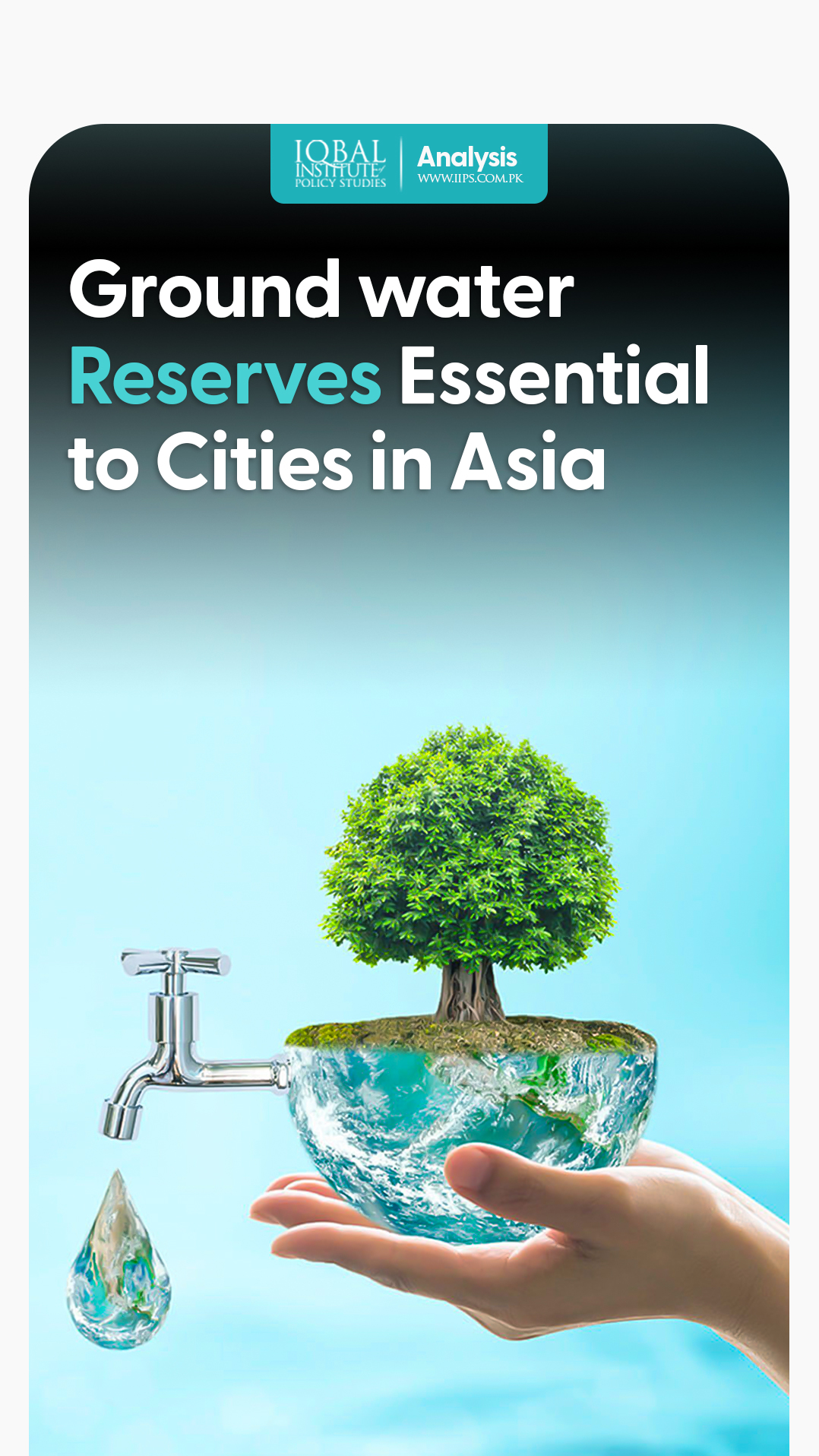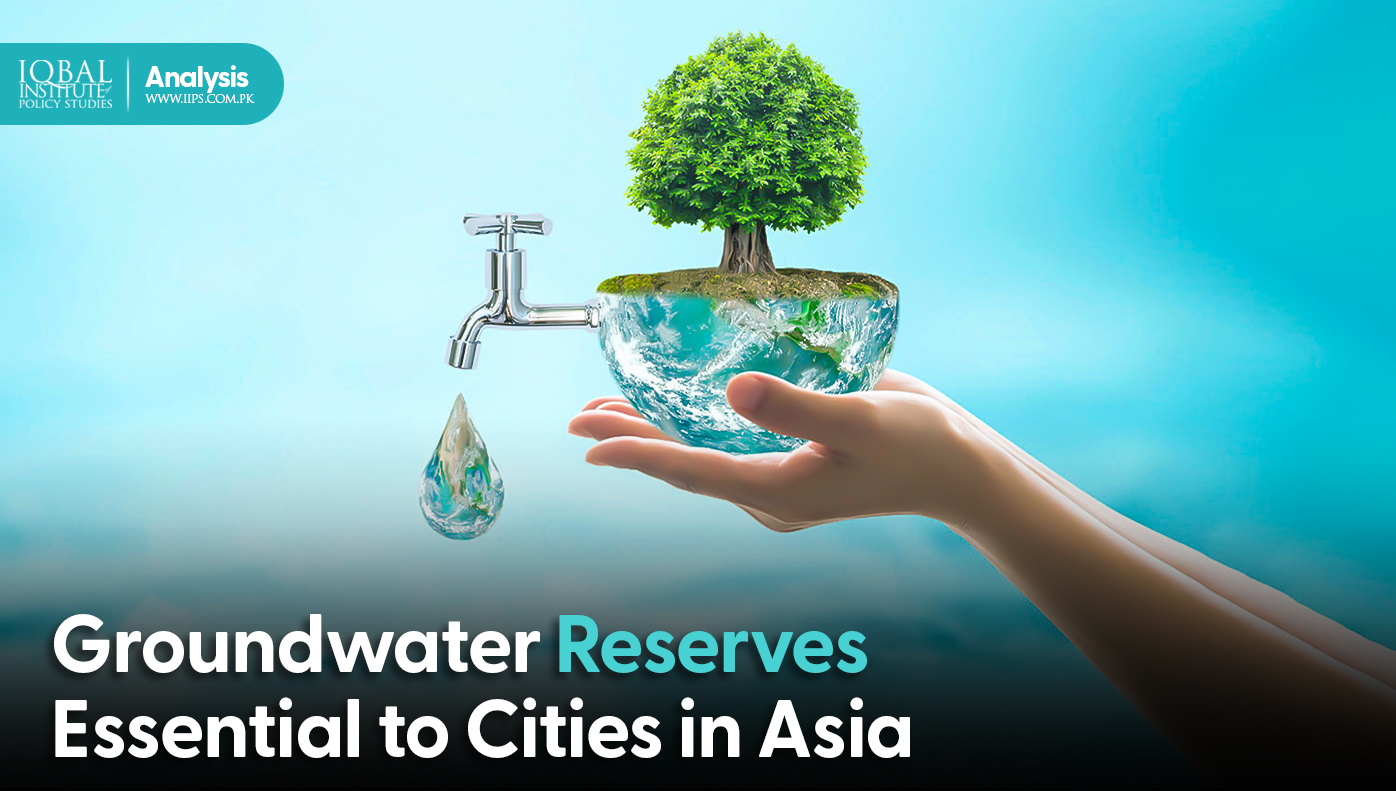Groundwater plays an essential role in the development of cities in Asia. Pakistan is considered the third-largest water user for irrigation in the world. The surface water irrigates 27 per cent of the land area, whereas the remaining 73 per cent is irrigated using groundwater in the country.
It also supplies 90 per cent of domestic water in rural areas of Pakistan (World Bank,2021). Groundwater helps to mitigate the impacts of increasingly variable canal water supply and rainfall.
The growing urbanisation and climate change have increased water demand. Currently, in Asia, more than half of the 4 billion residents of developing countries live in urban areas and are also expected to have an additional 1 billion residents by 2050 (Asian Development Bank,2021).
Combined with more frequent and extreme water-related events like drought, the growing demand for water poses a challenge to urban water security.
Pakistan’s Indus Basin Irrigation System (IBIS) is one of the world’s largest surface water irrigation systems. It consists of mighty barrages and thousands of kilometres of canals. The IBIS irrigates millions of hectares of agricultural land and hosts a vast groundwater reservoir central to the country’s water and food security.
Despite Pakistan’s dependence on groundwater, its depreciating condition remains abysmally understood, and the country has failed to develop a sustainable groundwater management program.
Groundwater supplies 90 per cent of domestic water in rural areas of Pakistan, contributing 70 per cent of domestic water nationally. However, the life-sustaining role of groundwater is threatened by over-abstraction, waterlogging, and contamination.
Only 20 per cent of the population has access to safe drinking water. At the same time, the remaining occupants rely on contaminated water due to increasing salinity, improper disposal of untreated wastewater, agricultural runoff with pesticide and fertilizer residue, and natural contaminants.
However, preserving and protecting groundwater is vital for public health and environmental sustainability. The government must apply strategic approaches to improve groundwater management as it is crucial for a healthy, wealthy, and green Pakistan.
To make groundwater safe and reliable for drinking purposes and a lifeline for tail-end farmers, there must be a balance between the efficiency of the surface water system and the sustainability of groundwater resources.



Leave a Reply